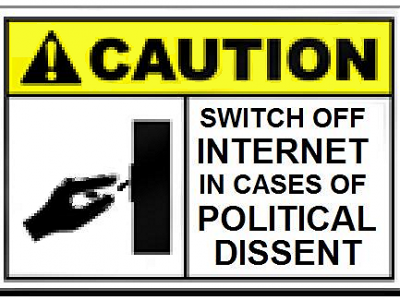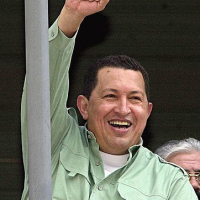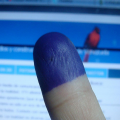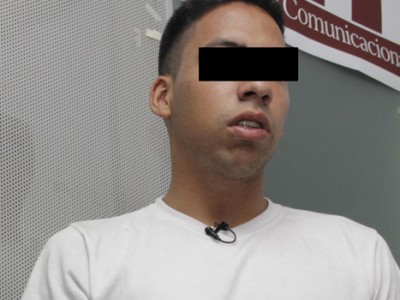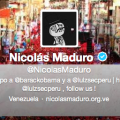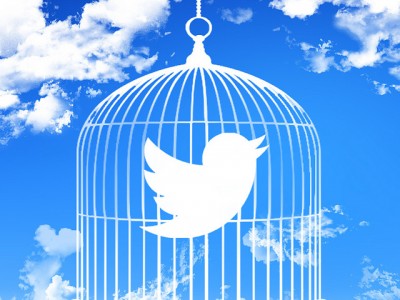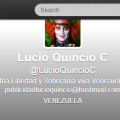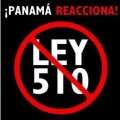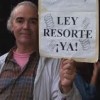Stories about Venezuela
Venezuela: Authorities Threaten to Fine Media Outlets for Protest Coverage
Protests in Venezuela have intensified after several students were detained on dubious charges. Venezuela's telecom commission is warning media that protest coverage could stand in violation of national law.
Venezuela’s President Announces Web Blocking on Live TV
On Saturday, November 9, Venezuelan President Nicolas Maduro announced publicly the government's decision to block several websites that track the unofficial price of foreign currency.
Venezuela: Chavez Recording Hits the Web, Top-Level Domain is Blocked
On September 28 and 29, Venezuelan Twitter users reported that all .co domains and shortened urls were blocked on government-owned ISP, Cantv.
Will the Revolution Still be Tweeted? Venezuela's Netizens Face Uncertain Future
Since the death of Hugo Chavez and narrow victory of Nicolas Maduro in Venezuela, two social media users have been arrested for posting information deemed “destabilizing” to the country. On election day, the Internet was briefly shut down throughout most of the country. And today, social network users are facing threats to their employment status, as authorities search profiles for signs of political affiliation that have, in several cases, resulted in users losing their jobs.
Venezuela: Facebook User Detained for “Destabilizing” Photograph
Two days after presidential elections in Venezuela, authorities detained Andrés Rondón Sayago, a citizen who allegedly spread photographs of burning ballots. Officials say that the photographs were taken during 2007 elections, not in the present day. Rondón Sayago has been accused of sharing the photographs with “destabilizing intentions.”
Venezuela: Internet blocked for “three minutes” on Election Day
Late on Election Day in Venezuela on Sunday, April 14, Internet access through the country's primary service provider CANTV was interrupted for about twenty minutes according to users' declarations and for "no more than three minutes" according to the authorities.
Venezuela: Twitter user detained for spreading “destabilizing” information
On March 14, Lourdes Alicia Ortega Pérez was detained by Venezuelan authorities for allegedly having "usurped the identity of an official of the Autonomous Service of Registries and Notaries" and having sent messages on Twitter that were "destabilizing [to] the country." An official press release stated that police also seized Ortega's personal computer as part of their investigation.
Venezuela: Home of Twitter User Raided
The home of Twitter user Federico Medina Ravell, who's allegedly behind the account @LucioQuincioC, was raided on Sunday, January 6, by Venezuelan intelligence officers. The micro-blogger is suspected of spreading rumors about the health of Mr Hugo Chávez.
Domain Names: Expression that Deserves Protection
The Initiative for Freedom of Expression on Internet (iLEI, by its Spanish name), a special program of the Center of Studies for Freedom of Expression and Access to Information, has a new work where it addresses the relationship between freedom of expression, domain names and the various models countries adopt to administrate them.
Latin America and the Caribbean Netizen Report: Free Trade Edition
In this edition, we focus on recent free trade agreements and the challenges they pose in the digital age. To fulfill the requirements of a free trade agreement with the United States, the Congress of Panama approved a law last week that will impose severe penalties for violating copyright and will make it almost impossible for the accused to be able to present their cases in court.
Venezuela: State-owned ISP presumably blocks news website
As of May 17th, Venezuelan netizens have reported through Twitter that the news website lapatilla.com might have been blocked by governmental ISP, Cantv.net.
Venezuela: Cyberactivist Luis Carlos Díaz harassed and threatened by “hackers”
For the second time in only four months, Venezuelan journalist and cyberactivist Luis Carlos Díaz is being harassed by a so-called group of pro-government "hackers", who act under the name of N33, and who in previous months have hacked into the Twitter and e-mail accounts of about thirty different Venezuelan personalities, including journalists Sebastiana Barráez, Ibéyise Pacheco, political humorist Laureano Márquez, activist Rocío San Miguel and writer Leonardo Padrón, amongst many others.
Venezuela: Troubles to access Blogger.com
During all the month of August, Venezuelan bloggers have been complaining about difficulties to access Blogger.com services. Citizens claim that, even when the problems have been profusely reported to CANTV (the main, government-owned, Venezuelan ISP), the company has not provided any answer, nor have they solved the issue.
Venezuela: The bill to regulate internet has been approved
On Monday, December 20th, the Venezuelan Parliament passed the bill that gives the Executive the power to regulate all content accessible in Internet within Venezuela. Through an administrative organ, CONATEL, all venezuelan-based ISPs will have the responsibility to block all content that collides with article 28 and 29.
Venezuela: Internet law moves forward, albeit with changes
In a first round of discussion, on December 14th, the Venezuelan National Assembly approved the reform to the Law on Social Responsibility in Radio, Television and Electronic Media and differed for today the Law for Telecommunications. However, the texts that were discussed yesterday were different to the ones that were published on the Assembly website, and several points were eliminated
Venezuela: A law to regulate the Internet raises controversy
Venezuelan government is promoting a law reform to regulate the access and usage of the Internet within the country, and also the implementation of a national Network Access Point.
Venezuela: WordPress reported inaccessible for three days
Since Sunday afternoon, September 26th, 2010, while Venezuelan elections for the National Assembly were still being held, several users started reporting that they were unable to access any blog hosted on the free blogging platform Wordpress.com from their internet connections within the country.
Venezuela: Government vs. Social Networks, the battle continues.
Last week, the President of the Media Commission of the National Assembly, Manuel Villalba, declared that tomorrow, September 21, he’ll file a petition before the National Prosecutor against several websites (link: ES). The cause: during a spate of deceases of people belonging to the high spheres of the government, several people expressed their enjoyment for the deaths, in diverse social networks and forums. Regarding this matter, legislator Gustavo Capella declared that this investigation should also encompass twitter and facebook.
Venezuela: Two people arrested for tweeting about banking rumors
After menacing twitter users for their online activities a couple weeks ago, last thursday two persons were arrested, accused of spreading false rumors about the banking system. Those arrested were identified as Luis Acosta Oxford (41), and Carmen Cecilia Nares Castro (35).
Venezuela: Twitterers, bloggers and forum members, in the eye of the justice.
A week ago, venezuelan President ordered to initiate a thorough and systematic investigation in order to identify the sources of the rumors about the instability of private banking. Authorities stated that generation of rumors is a crime, and that users of digital forums, online social networks, twitter or even text messages might be held responsible for manipulation and 'terrorism'.

